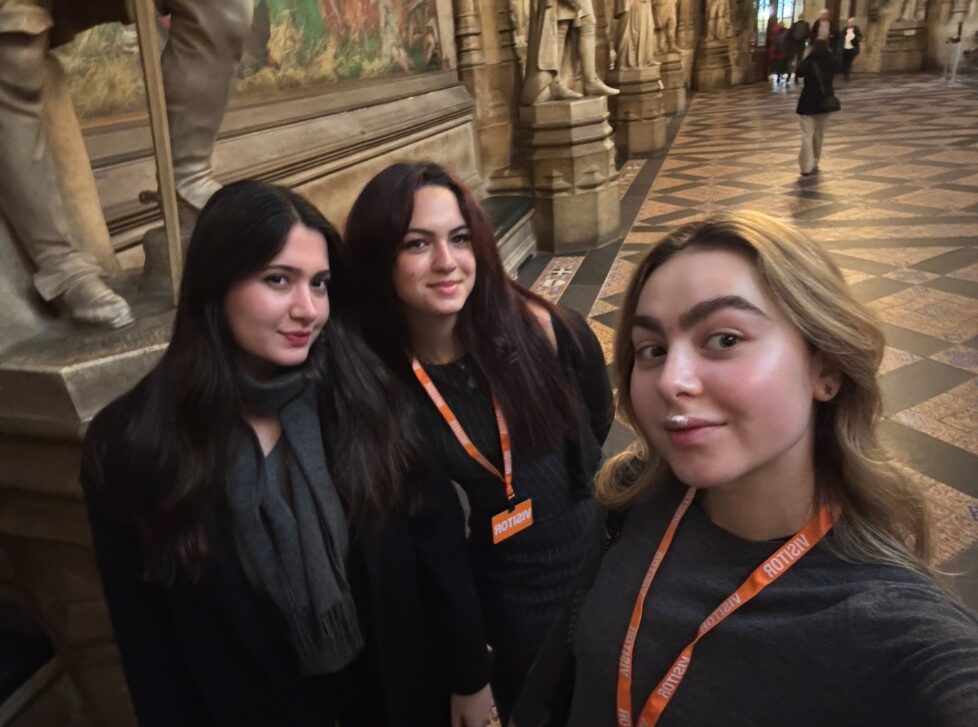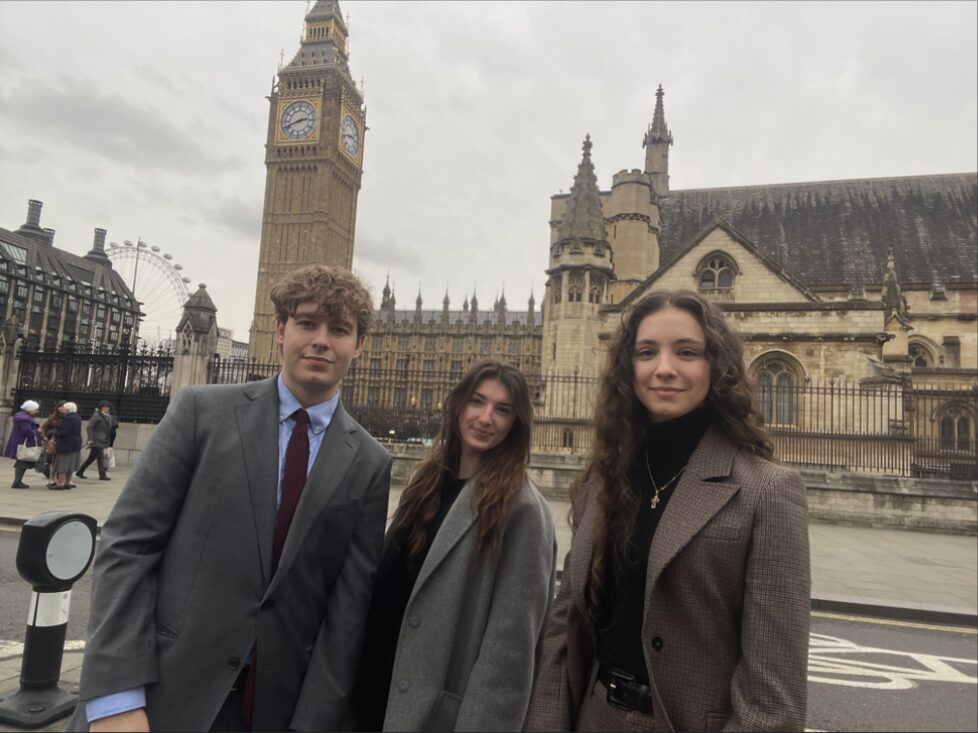What was the project?
An experiential project was set by Ursula Smartt, Associate Professor of Law at NU London, for all first year law students to work in groups, following one bill through parliament which had been announced in the King’s Speech at the State Opening of Parliament in July 2024.
What was involved?
Students worked in teams of four from the law discipline to select one bill from King Charles’ III speech (there were 40). All four groups selected a different bill each addressing different challenges. With regular assistance from university law discipline staff (Ursula Smartt) the students developed a sense of teamwork as they honed their observational and oral advocacy skills, presenting their findings in a group presentation to class accompanied by evidence-informed PowerPoint presentations an impactful event at the end of their first year of legal study.
How did students learn?
Once the law students had selected their public bill, they first researched the passage of the bill via the parliamentary website. They had to find out about the ‘parliamentary ping pong’, the passage of the bill arising either in the lower house, House of Commons (HC) or the upper house, House of Lords (HL). They had to find out the parliamentarian who championed the bill and why either the HC Member of Parliament (MP) or peer (HL) had advanced the bill. Students learned through experience and actions by observing parliamentary sessions in either houses as well as study the bill and its text carefully as the bill reach Committee Stage (HC or HL). Finally, the students had to go to parliament to watch their bill being debated. Some debates lasted until late at night.
And there were regular opportunities for reflection to help students analyse the experience and consider its value for their own personal and professional development. Students honed their transferable skills, especially those that are in high demand by employers such as city law firms, barristers chambers and parliamentary offices, such as teamwork, creative thinking, problem-solving, and communication.
Key benefits for students:
- engaged in real-world learning that could be showcased to prospective legal employers
- developed socio-legal and constitutional insights and expert knowledge in the field of public constitutional and administrative law
- networked and discovered potential employment opportunities
- enhanced personal and professional legal development
- had a meaningful experience with real-world impact
- engaged in a deeper level of learning, applying academic knowledge to a complex legal challenges such as statutory interpretation and applied legal research.
Law students’ perspective
First year law students on the NU London Law Degree (2025)

“As it was our group presentational task to follow a bill through the UK Parliament, we attended the House of Lords’ debate on 20 January 2025 from 4 pm until late that evening. We were following the passage of the Mental Health Bill which had by now progressed over several years through both houses of parliament (known as parliamentary ping-pong). The bill was now at HL Committee Stage, championed by Baroness Gillian Merron. Part of our experiential learning was that we were now able to better grasp the role of the House of Lords in helping modernise outdated UK legislation (such as the current Mental Health Act 1983), especially through the proposed amendments during the very calm debate in the HL. Amendment 141 by Earl Howe stood out to us, during which the semantic difference between “serious harm” and “significant harm” was discussed in relation to ‘harm to the public’ by a mental health patient who had been sectioned. This, along with the bill’s focus on patient detention and treatment, unfurled healthy debate within our group. Apart from the fact that this wonderfully interesting practical legal exercise (of law making) produced a highly professional PowerPoint presentation and achieving a high mark in our assessment, we formed new friendships.”
Ellie Wisnia, Egi Gjoshi, Elisa Piat and Cianna Singh.

“We thoroughly enjoyed visiting the Houses of Parliament where we got to see some of the United Kingdom’s most influential lawmakers in action. This project allowed us to become closer friends through extensive teamwork, cooperation and negotiation. We understand our constitutional legal studies better, because via this experiential legal learning, we are more familiar with British parliamentary law-making than we ever could have read in a textbook. Since we are all applying for legal internships right from the first year of the law degree at NU London, this not only looks great on our CVs but also gives us something realistic to talk about when it comes to interview. It has been fun and inspiring to step outside the classroom and take responsibility for our education and career progression. Often projects can feel like a chore but because of the hard work we were encouraged to put in by our lecturer Ursula Smartt and by visiting Parliament we are passionate about our work.”
Benjamin Barber-Riley, Bianca Vieriu and Emma Coombs.
Faculty perspective
“It was a real pleasure working with a group of first-year law students at Northeastern University London. Considering that most of them were new to London or the UK and had not studied law before, especially a complex area such as Constitutional Law, the students were committed to the project from the start and enjoyed the experience of attending parliamentary sessions in both Houses of the Westminster Parliament (House of Commons and House of Lords). Throughout the semester they remained positive and passionate about the topic of following a bill through parliament and experiencing the parliamentary ping pong- law-making process. They were most surprised that they could just ‘walk in’ (after the necessary security checks at the main gate) – and freely attend parliament listening to debates from the public gallery. They responded well to being challenged to think critically and creatively and be bold in their responses when it came to the oral group presentation. And knowing they were using the acquired practical legal knowledge such as statutory interpretation outside of the classroom made it even more worthwhile.”
Ursula Smartt, Associate Professor of Law and Legal Careers Counsellor


